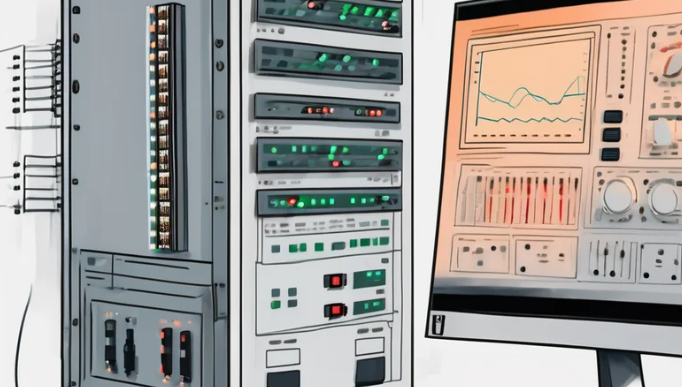Course Details
Your Growth, Our Mission

Course Description
The Training Course Will Highlight ?
Training Objective
Target Audience
This course is designed for personnel with a need to understand the techniques required to use and apply modern industrial communications and telecommunications technology as productively and economically as possible.
This includes electrical, control and instrumentation, SCADA and telemetry systems, process control engineers and supervisors, engineering managers, network administrators, field technical support staff, and project management staff.
Training Methods
Daily Agenda
Day 1:
Introduction:
- Course Objectives
- The Manual
- What is Data Communications
- Brief Overview of “Smart” Instrumentation
- Overview of Modern Instrumentation and Control Systems
Definitions, Basic Principles, and Coding:
- Background to Data Communications
- Sources, Receivers, and the Communications Interface
- Transmission Modes – Simplex and Duplex
- Bits, Bytes and Characters
- Parallel and Serial Communications
- Analog and Digital Signals
- The Coding of Messages – The ASCII Code
- Data Transmission Speeds
- The Format of Messages
- Introduction to Error Detection and Correction (EDAC)
- The Universal Asynchronous Receiver/Transmitter (UART)
- The Importance of Standards
Data Communications Standards:
- Null Modems
- Modem Control & Handshaking
- Trouble Shooting on RS-232
- EIA-RS-423 Interface Standard
- EIA-RS-422 Interface Standard
- EIA-RS-485 Interface Standard
- Comparison of EIA Interface Standards
- Interface Converters
- Current Loop Interface
- Introduction to Networks
- Testing Equipment (Breakout Box, Line Analyzer)
- Protocol Analyzer Practical
Selection and Installation of Copper Data Cables:
- Cables with Copper Conductors
- Interference and Noise (IEEE-518)
- Cable Selection and Installation Recommendations
Day 2:
Modems and Interface Converters:
- Concept of a modem
- Various Modulation Techniques
- Smart Modems
- Radio Modems
- Data Compression Techniques
OSI-Open Systems Interconnection:
- Modern Factory Automation & Process Control Systems
- OSI Reference Model and Standards
- Individual Layers
- Illustrative Example of OSI
Local Area Networks:
- LAN History
- LAN Topologies
- LAN Media Access Control Techniques
- LAN Standards
- Protocols: TCP/IP
- LAN Extension and Interconnection (Bridging, Switching, Routing)
- Physical Issues
- CSMA/CD Bus (Ethernet Standard)
- Industrial Ethernet
- Token Ring
- Token Bus
- Wireless Local Area networking: IEEE 802.11
Error Detection:
- Feedback and Forward Error Control
- Cyclic Redundancy Checks
Proprietary Protocols:
- The Concept of a Protocol
- Protocol Design
- Data Processing Protocols
- Allen Bradley Data Highway Plus Protocol
Day3:
Proprietary Protocols (cont.):
- Modbus history and evolution
- Modbus concepts and message structure
- Modbus Plus
- Modbus TCP/IP
- Modbus interfacing
- Practical Demonstration of Modbus
Selection of Standards and Protocols.
Telecommunication Basics:
- Concepts: Signaling, Circuits, Channels, Lines, Trunks,
- Bandwidth, Channel Capacity.
- Full vs. Half Duplex
- Baseband, Broadband, Narrowband and Wideband
- Analogue vs. Digital transmission
- Dial-up vs. Leased Access
- Multiplexing techniques: FDM, TDM, PCM, WDM,
- Connection Oriented vs. Connectionless Communication
- Circuit Switching vs. Packet Switching
- Switching vs. Routing
- Local Area vs. Wide Area Networks
- The "Communications Cloud"
- The PSTN vs. the Internet
Transmission Media:
- Introduction
- Fiber Optic
- Power System Carrier
- Microwave Radio
- Satellite Systems
- Infra-Red
- Fiber Optic Communication Concepts
- Optical Cable Selection
- Connectors
Smart Instrument Systems:
- Digital vs. Analog Data Transmission
- Cabling
- Remote diagnostics and calibration
- HART
Day 4:
Fieldbus Protocols:
- Actuator Sensor Interface (ASI)
- CAN Bus
- Device Net
- InterBus
Fieldbus Protocols (cont.):
- Profibus DP
- Profibus PA
- Foundation Fieldbus
Public Network Transport Technologies:
- Analogue Switched (dial-up)
- Public Switched Telephone Network (PSTN)
- Analogue Dedicated (leased) Alternatives
Public Network Transport Technologies (cont’d):
- Digital Switched (dial-up) Alternatives; Switched 56, ISDN-BRI; Frame Relay (SVC); SMDS; ATM
- Digital Dedicated (leased) Alternatives: DDS; T-1; T-3; E-1; ISDN-PRI; B-ISDN; X.25; Frame Relay (PVC); SDH/SONET
- Signaling System #7
- Services
Day 5:
PLC:
- Traditional control
- PLC system components
- PLC device operating concept
- PLC device main components
DCS:
- Definition
- Applications
- DCS components
- DCS networks
SCADA
- Definition
- Applications
- SCADA components
- SCADA networks
Automation systems
- PLC Vs DCS Vs SCADA
- PLC Vs RTU
- Systems’ Integration
- Classifications
- Automation systems’ Selection guide
Conclusion
- Pulling all the Strands Together
Accreditation
Certification that all the attendees will get BTS certification upon successful completion of the exam assessment
Quick Enquiry
Request Info
Related Courses
Your Growth, Our Mission

